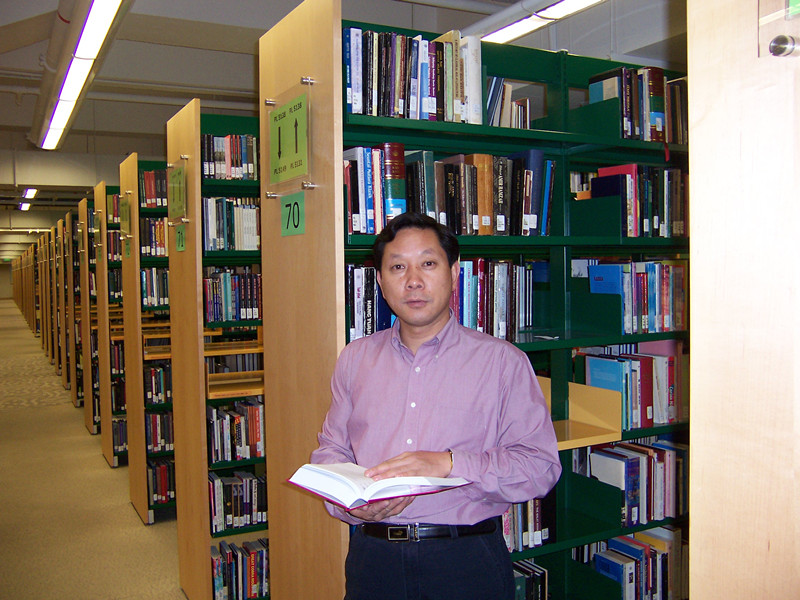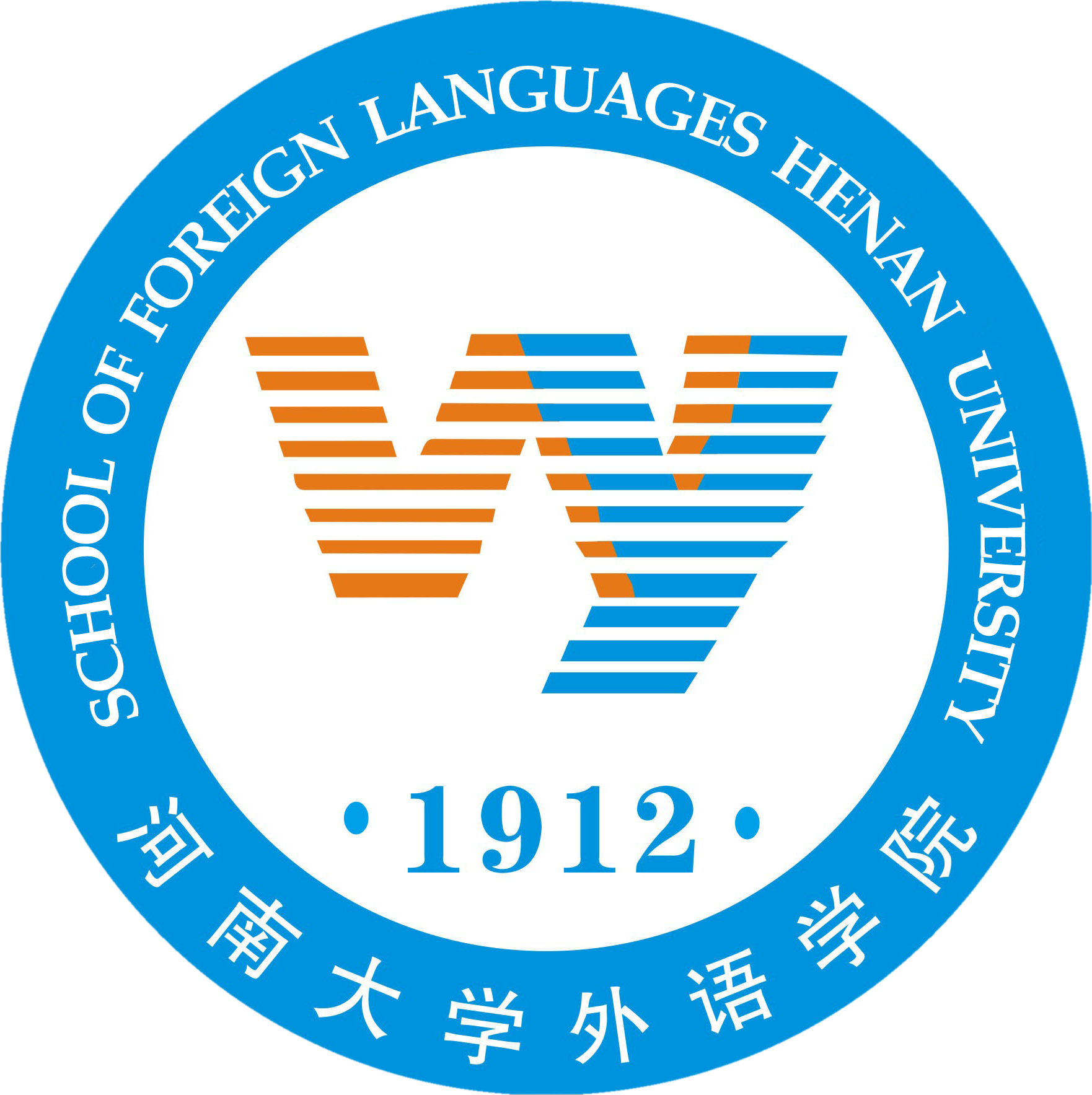
LIU Zequan (刘泽权,劉澤權)
Curriculum Vitae
Personal Particulars
Name: LIU Zequan
Gender: Male
Date of birth: 18 July, 1963
Place of birth: Henan, P.R. China
Nationality: P.R. China
Academic degree: Doctor of Philosophy in Translation Studies, NUS
Professional title: Professor of English and Translation Studies
Affiliation: Institute of Graduate Studies, College of Foreign Languages, Henan University, Kaifeng, P.R. China
Education
● September 1980 — June 1984: undergraduate student majoring in English language and literature, Henan Teachers’ University, Xinxiang, Henan, China.
● September 1991 — March 1994: master degree candidate in English for Specific Purpose (ESP), Huazhong (Central-China) University of Science and Technology, Wuhan, Hubei, China.
● July 1996 — May 1997: visiting scholar in Postgraduate Diploma in English Language Teaching (PGDELT), the National Institute of Education (NIE), Nanyang Technological University (NTU), Singapore (selected by the Ministry of Education of China and sponsored by the Ministry of Education of Singapore).
● January 1999 — December 2000: master degree candidate in English Studies, National University of Singapore (NUS, with full scholarship from NUS).
● January 2001 — March 2004: doctoral candidate in Translation Studies, National University of Singapore (NUS, with full scholarship from NUS).
Research Interests
● Translation Studies, with special focus on the construction and comparison of Chinese-English parallel corpora of Chinese classical vernacular novels, including Hong Lou Meng (Dream of the Red Mansion), Sanguo Yanyi (Romance of the Three Kingdoms), etc., and their multiple English translations.
● Corpus Linguistics, particularly in a corpus-based approach to the teaching of translation, discourse analysis, and writing.
● Teaching English as a Foreign Language (TESOL).
● Advertising discourse analysis.
Teaching
A. Ongoing Courses
1. Translation Criticism and Appreciation, required course, undergraduates major in Translation third year
2. Corpus Linguistics, required course, graduates majored in Linguistics and Applied Linguistics second year
B. Previous Course
1. Simultaneous Interpretation, required course, Translation major fourth year
2. Interpretation Workshop, elective course, MTI students second year
3. Translation of Chinese Classics, elective course, Translation major fourth year
Recent Publications
A. Monologue
The Construction and Application of the Chinese-English Parallel Corpus of Hong Lou Meng (Dream of the Red Chamber). Beijing: Guangming Daily Press. 2010 & 2012, 235 pages. [《<红楼梦>中英文语料库的创建及应用研究》, 北京:光明日报出版社, 2010, 2012]
D. Single authored articles
1. A group sketch of modern and contemporary female translators in mainland China: a study based on the Chinese Translator’s Dictionary, Chinese Translators Journal, 2017.
2. A narratological analysis of Wang Xifeng’s utterances, Studies on A Dream of Red Mansions, 2017.
3. Historicizing women translators’ century-old contribution to literary transaltion in the Chinese Mainland, Taiwan and Hong Kong, Chinese Translators Journal, 2016.
4. Compiling the Chinese-English Cultural Dictionary of Hong Lou Meng: The why, what and how, Studies on A Dream of Red Mansions, 2016.
5. The Transmutation of Dream of the Red Chamber: A Savouring of Pauline Chen’s The Red Chamber, Studies on A Dream of Red Mansions, 2015.
6. Translating tenor: with reference to the English versions of Hong Lou Meng. Meta,2008.
E. Co-authored articles
1. Meaning mediation and crisis management of the multirole interpreter-- A systemic functional analysis of a consecutive interpretating case, Foreign Language Teaching and Research, 2019.
2. Martha P. Y. Cheung’s construction of the Chinese discourse on translation, Chinese Translators Journal, 2019.
3. An overview of the group of female translators in Hong Kong, Foreign Language Education, 2019.
4. Comparison of compilation strategies between Wang Jizhen and McHugh's English versions of Hong Lou Meng, Studies on A Dream of Red Mansions, 2019.
5. A comparative analysis of the six versions of The Old Man and the Sea--An evaluation of retranslation, Chinese Translators Journal, 2018.
6. On the general tendency and characteristics of linguistic and literary NPOPSS projects from 2013- 2017, Journal of Xi’an International Studies University, 2018.
7. A comparison between domestic and foreign corpus-based Translation and cognitive translation Studies: A bibliometric and visualized analysis of the WoS and CNKI, Journal of PLA University of Foreign Languages, 2018.
8. The plot construction method of Lin Yutang’s abridged translation of Hong Lou Meng, Studies on A Dream of Red Mansions, 2018.
9. Applying multivariate analysis in literary style investigation: A case study of The Old Man and the Sea, Computer-assisted Foreign Language Education, 2017.
10. A comparative stylistic study of The Old Man and the Sea and its six Chinese versions, Foreign Language Education, 2017.
11. A contextualized investigation of the explicitation of reporting verbs in the English translations of Hong Lou Meng: With reference to Wang Xifeng’s utterances, Foreign Languages and Teaching, 2016.
12. How would Lin Yutang translate Hong Lou Meng (Dream of the Red Chamber): An intertextual empirical analysis, Chinese Translators Journal, 2015.
13. Some problems of CCD 6th edition: With a call for a corpus-based Chinese lexicography, Journal of Chinese Linguistics, 2015.
14. A pilot study of the design and implementation of a system for the automatic assessment of learners’ translations, Journal of PLA University of Foreign Languages, 2015.
15. A review of studies of the English translations of Hong Lou Meng in the new century, Foreign Language Research, 2015.
16. A study of the chapter titles in Chi-chen Wang’s abridged English translation of Hong Lou Meng, Studies on A Dream of Red Mansions,2015.
17. Ideological maneuvering and dynamic reader positing: A comparison of Dick Cheeny’s speech and its two Chinese versions from the perspective of appraisal theory, Foreign Studies,2015.
18. The values of a corpus-based Chinese-English translation dictionary – With reference to the Hong Lou Meng Chinese-English Culture Dictionary, Journal of Hebei University, 2015.
19. Is this English translation of Hong Lou Meng by Joly himself? A corpus-based investigation of translator style, Foreign Languages in China, 2014.
20. A study of the macro linguistic features of the English translations of the Four Chinese Classic Novels, Corpus Linguistics, 2014.
21. A corpus-based analysis of Howard Goldblatt’s translator style: With reference to his English translations of Mo Yan’s novels, Foreign Languages and Their Teaching, 2014.
22. Whose eyes are you in? The narrative perspectives in Hong Lou Meng and its three English translations, Foreign Language Research, 2013.
23. Spoiled Chinese culture “favorites”: A comparative study of “chi” (eat) in metaphorical expressions in Hong Lou Meng and their English translations, Journal of Hebei University, 2013.
24. Thoughts of and solutions to the “Going abroad” of Chinese classics: with Hong Lou Meng as a case in point, Journal of China University of Mining and Technology, 2013.
25. An investigation of the use of italicized lexis for emphasis in the two English translations of Hong Lou Meng and its motivation, Studies on A Dream of Red Mansions, 2013.
26. Corpus-based Chinese-English literary translation studies and lexicography: with reference to “chi” (eat) in Hong Lou Meng and its four English versions. Chinese Translators Journal, 2012.
27. Study on the criterion of translating reduplicated words in Chinese poems: A comparison of the two English versions of Xi You Ji, Foreign Languages and Their Teaching, 2012.
28. A corpus-based comparison of the three English translations of Chairman Mao’s poems, Journal of PLA University of Foreign Languages,2012.
29. An overview of domestic studies on translation quality assessment, Journal of Yanshan University, 2012.
30. A study nominalization in the position of the grammatical subject in English translations of Chinese literary works, Foreign Language Education, 2012.
31. A study of the use and cause of delexical verb structures in the English translations of Hong Lou Meng, Studies on A Dream of Red Mansions, 2012.
32. A corpus-based investigation into the translator style of the four English versions of Hong Lou Meng, Chinese Translators Journal, 2011.
33. Translation teaching and learner translation assessment: a corpus-bases approach, Foreign Languages in China, 2011.
34. A first look at Bonsall’s English translation of Hong Lou Meng, Studies on A Dream of Red Mansions, 2011.
35. Building a parallel corpus of the Four Chinese Classical Novels and their English translations: Problems and solutions, Contemporary Foreign Languages Studies,2011.
36. A parallel corpus-oriented study of the source texts of the English trsnaltions of the of the Four Classical Novels, Journal of Hebei University, 2010.
37. Choice and style: on the the English translation of the reporting verbs headed by “dao” (say) in Hong Lou Meng, Journal of PLA University of Foreign Languages, 2010.
38. An empirical study of explicitations in Chinese translated fiction: with reference to three versions of Lady Chatterley’s Lover, Foreign Languages and Their Teaching, 2010.
39. A corpus-base study of the “adoration of red” in Hong Lou Meng, Contemporary Foreign Languages Studies, 2010.
40. Narrative markers in Hong Lou Meng and their translations: a corpus-based study, Foreign Language Research, 2009.
41. Lost and found: Looking back at the travel of L. Venuti’s translation theory in China, Foreign Languages Research, 2009
42. Application of multi-media computer technology and corpus-based approach in the renovation of the translation course, Foreign Languages and Their Teaching,2009.
43. Research of “ku” (to cry) in Hong Lou Meng, Hebei Academic Journal, 2009.
44. A comprehensive study of the five English versions of polite addresses in A Dream of Red Mansions, Foreign Language and Literature, 2009.
45. Building a Chinese-English parallel corpus of Hong Lou Meng, Contemporary Linguistics,2008.
46. Current studies on explication at home and abroad, Chinese Translators Journal, 29 2008.
47. Idioms in Hong Lou Meng and their English translations, Foreign Language Teaching and Research, 40 (6):460-466 (2008).
48. A multi-modal semiotic analysis of the emblem of the Shanghai Expo, Journal of Yanshan University, 3:123-126 (2008).
F. Research Projects
A. Completed
1. 2005-2007, “The Construction and Application of the Chinese-English Parallel Corpus of Hong Lou Meng (Dream of the Red Chamber) and its Three English Translations”, national project sponsored by the China National Social Sciences Funds (Approval No. 05BYY028).
2. 2008-1010, “The Research and Application of Key Solutions to a Chinese-English Parallel Corpus-based Data Grid”, provincial project sponsored by the Department of Science and Technology of Hebei Province, China (Approval No. 072135217).
3. 2008-2010, “The Construction of the Chinese-English Parallel Corpus of the Four Chinese Classical Novels and their English Translations”, provincial project sponsored by the Social Sciences Funds of Hebei Province, China (Approval No. HB08BYY008).
4. 2011-2012, “The Research of a Corpus-based Model of the College Translation Course”, provincial project sponsored by the Social Sciences Funds of Hebei Province, China (Approval No. HB10Y007).
5. 2010-2014, “The Research of the Compilation of a Chinese-English Dictionary of Cultural Key Terms in the Hong Lou Meng (Dream of the Red Chamber) Chinese-English Parallel Corpus”, national project sponsored by the China National Social Sciences Funds (Approval No. 10BYY011).
B. Ongoing
1. 2015 – Present: “A Critical Survey of Women Translators in Taiwan, Hong Kong and Mainland China (1900-2000)”, national key project sponsored by the China National Social Sciences Funds (Approval No. 15AYY004).
Recent Awards
l April 2016-- “Person of the Year” for Philosophy and Social Science Research in Henan Province
l August 2017-- Outstanding Achievement Award for Social Science in Henan Province, Third Prize
